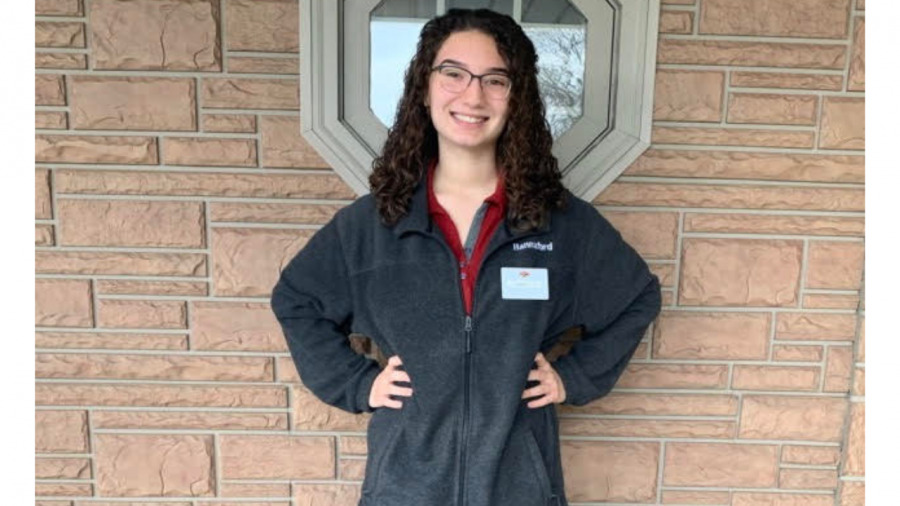Essential workers have been at the forefront of the coronavirus pandemic. Doctors, nurses, first responders, grocery store employees and other retail workers have been working to provide minimum services to the population while also putting themselves at risk.
Some UC students such as sophomore Isabella Saggese constitute essential employees. She shared her experience working at the Hannaford grocery store in Washington Mills during this time.
Saggese said the grocery store was hectic when COVID-19 first began to spread throughout the country. It was much busier than the holiday season, she said. There were aisles overflowing with shoppers, meaning cashiers had customer after customer all day long.
“For me at least, that got overwhelming,” Saggese said.
To compensate such large crowds shopping at Hannaford, more employees were put on shifts. However, just like the shoppers, employees are also trying to protect themselves as much as possible against COVID-19 and it can get dangerous when they are exposing themselves to multiple people a day.
“It’s a weird feeling because there’s just this worry of getting the virus hanging over me every time I go into work and interact with the customers,” Saggese said. “But I have to do my job.”
It is a constant apprehension among essential employees to prevent themselves from contracting COVID-19 and spreading it to others.
Saggese said her co-workers are nervous when it comes to being around people all day and touching what they have touched when cashing them out. They also bring their worries home with the possibility of unknowingly being exposed and spreading it to family members.
“I am not nervous about getting the virus,” Saggese said. “I’m more worried about who I’d give it to.”
Saggese said she is constantly reminded of the severity of the situation when observing shoppers with masks and taking the extra precautions.
As a result, safety measures have increased during this time at the store.
In order to protect one another at the cash registers, plexiglass was installed to separate the cashiers and the shoppers. Saggese said cashiers are no longer able to bag items in reusable bags brought from shoppers’ homes.
“We can bag for them if they want to use paper or plastic or buy new reusable bags,” she said.
Other ways Hannaford has taken precautionary measures is that the store is no longer accepting returns on items, nor helping customers carry items to their car. Money and receipts are placed in a “bin” to minimize hand contact and shoppers must stand in certain spots in line in order to remain six feet apart.
“I am still getting used to all of it,” Saggese said. “Hannaford is all about helping our customers anyway we can and telling them that they have to bag their own groceries or that we cannot accept their return makes me feel guilty.”
Saggese said that although there are many more rules in place, she understands the reasoning and wants everyone as safe as possible.
Employees who are in charge of stocking items are good at making sure the store has everything needed to keep shelves full, she said. Although it is inevitable to run out of many items during this time, shipments are in regularly.
Most customers are pleased with the way Hannaford conducts their store during this time, Saggese said, however keeping every customer happy is sometimes a struggle.
Saggese said customers were taking toilet paper right off the carrier when employees were trying to place it on the shelves. Other customers were upset when the store was sold out of what they wanted.
Saggese’s advice during this pandemic is to just constantly wash your hands, don’t touch your face and try to keep a safe distance from others when possible.


















![President Todd Pfannestiel poses with Jeremy Thurston chairperson Board of Trustees [left] and former chairperson Robert Brvenik [right] after accepting the university's institutional charter.](https://uticatangerine.com/wp-content/uploads/2023/10/unnamed.jpeg)


















































































































